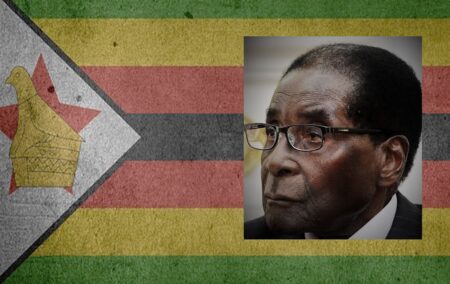Civil rights and economic freedom must be central to overcoming the devastation visited on Zimbabwe by the late Robert Mugabe.
The former dictator of Zimbabwe left his country in a state of civil unrest, food shortages, political oppression, and ever-increasing decay. This all under the guise of wanting to fight ‘the oppressor’ and build a socialist utopia in Africa.
As always, socialism is built on the bones of the people, and Zimbabwe proved to be no exception. It will take years for Zimbabweans to regain their economic and individual freedoms and repair the damage Mugabe wrought. At least the man himself is no longer on this planet to stand in their way.
Nowhere is the importance of getting ideas right clearer than in Zimbabwe.
Mugabe wanted to implement the perfect socialist state, and he achieved exactly that: economic destruction.
He orchestrated the ethnic cleansing of at least 20 000 people in Matabeleland in the 1980s. He violently oppressed his political opponents, destroyed property rights, and drove many of his countrymen and women from the country — people who loved their homeland and wanted to build its future. Hyperinflation has ravaged the economy and people have very little prospect of economic progress. They have to rely on foreign aid for food. One wonders whether Mugabe realised that his own policies resulted in the increased dependence of his people on aid from the West and elsewhere – a great irony.
People have said that Mugabe was an anti-colonialist struggle icon, that his legacy is the emancipation of his people from the yoke of the West.
I think the brutal political murders he ordered, and the economic destruction of his own country which his policies caused, far outweigh any work he did to fight colonialism. His fight against oppression simply resulted in the oppression of his own people, by his own hand.
Zimbabwe has lurched from economic crisis to economic crisis, crises which would not have happened had Mugabe not undermined the economic freedom and individual rights of his own people.
Those who advocate for socialism, and implement it in their own countries, very quickly flee to countries that are economically freer when the destructive results of their philosophy come to fruition. That Mugabe frequently went overseas for his healthcare needs is a testament to the failure of the very ideology in which he apparently strongly believed, but to which he never subjected himself.
The people of Zimbabwe now have to deal with the bitter fruits of Mugabe’s glorious socialist revolution: starvation, fuel shortages, constant blackouts, no economic growth, very little investment, and few job opportunities.
The only moral way in which to remember Mugabe is as the brutal oppressor he was, a man who brought Zimbabwe to its knees, yet who died in a country with a capitalist economic system – the very thing he always professed to despise.
The only true path to progress for the people of Zimbabwe is that of capitalism. Entrench property rights and people will come back and new investment will flow into the country. The power of the state over people’s lives – power built up and consolidated by Mugabe – must be returned to individuals.
Zimbabweans have suffered under oppression for far too long; Mugabe’s legacy must be buried under a new direction of strong civil rights and economic freedom.
Chris Hattingh, a student of Objectivism and a passionate advocate for free markets and free minds, holds an MPhil degree from Stellenbosch University. This article was first published on Rational Standard on 6 September 2019 (https://rationalstandard.com)
If you like what you have just read, become a Friend of the IRR if you aren’t already one by SMSing your name to 32823 or clicking here. Each SMS costs R1.’ Terms & Conditions Apply.

